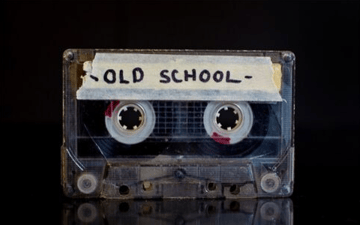Maintenance Planning and Scheduling is a funny industry; not only because of the complicated, high-stakes nature of installing, maintaining, and repairing industrial equipment and assets, but because of the disparity across the field. Though we both might be Planners or Schedulers, you and I might sit down and as we get to talking, realize that our needs, processes, and priorities are entirely different.
There is no “cookie cutter” best practice when it comes to what we do.
But in my experience, there’s one piece of advice that I believe will serve any and every Planner and Scheduler well, whether you’re working in Oil and Gas, Power Generation, Facilities Management, Manufacturing, or Utilities.
And that’s what I’d like to share with you today.
The #1 thing maintenance Planners and Schedulers need to succeed
Before I hung up my Planning and Scheduling hat to become a trainer, I worked for a contractor who did Planning and Scheduling at NASA for 12 years.
If there’s one thing I learned – and one thing I recommend to every client I meet – it’s that you cannot underestimate the importance of communication.
Maybe that seems obvious to you. But even if it does, in fact, especially if it does, I think it’s time to reexamine the communication in your organization. Because it is too often taken for granted, de-prioritized, or forgotten.
As a Planner or Scheduler, you need to know your shop and what kind of work they perform. For example, if you’re scheduling for electricians, you need to know what kind of electrical work they do.
- Do they work exclusively on generators, new constructions, Preventive Maintenance or Emergency/Exit lighting, etc.?
- Do any modular walls need to be assembled?
- How many technicians are needed at the job?
- Do they always work in pairs?
- Are there specific areas/locations for them to work or can they be assigned to work any location within the boundaries of their contract?
Knowing and understanding the work your shop or craft is performing is vital to your ability to make informed, strategic Planning and Scheduling decisions that minimize waste and optimize wrench time.
So, as a Planner or Scheduler, how do you get this information? Is it something you learn by trial and error over the years?
No! It’s about clear, consistent, detailed, two-way communication between you, your Supervisor, and your maintenance crews.
Own the maintenance communication culture
I’d say that in 90% of the training I conduct, their number one complaint is a lack of effective communication. My advice, based on my experience, is for the Planner or Scheduler to take ownership of the communication loop: you need it (probably the most) and it directly affects your ability to meet your goals and succeed in your role.
So, take the bull by the horns and lead the way to better communication at your organization.
While I was at NASA, we had a Scheduling meeting bright and early at 7:30 a.m. every day. It was great. Everyone who needed to be there attended that meeting: Planners, Schedulers, Supervisors, and a lead for each Craft (or in my case, shop.)
Later, some suggested that we cut back on meetings. Since I could see the immense value in communicating with my colleagues, I initiated new meetings with my Supervisor and my shop leads.
These meetings were critical, because I was able to gather great information such as:
- Why couldn’t the maintenance technicians finish the job?
- Why does a WO need to be rescheduled?
- Do any other crafts need to be involved?
- What equipment is needed?
- Are there other upcoming WOs at the same location?
- What special tools will be required? Do they need to be ordered or purchased?
- What other high priority WOs have come in?
If you find that the right meetings aren’t taking place, propose them! Whether you need a weekly recap, or to meet more frequently, such as a few times a week, make sure you’ve got a frequency that works for you and doesn’t leave you with information gaps.
Gather the right people and make it happen. Don’t wait for someone else to suggest it, because it might never happen.
Don’t forget, communication goes both ways. As a Planner or Scheduler, your job is communicating that you’ve done your due diligence, whether it’s confirming that forklift is available, or relaying that a spare part won’t arrive in time and getting the team together to figure out the next priority to fill in that schedule.
Planning and Scheduling communication leads to increased ROI
As I said earlier, every Planning and Scheduling department is unique. At some, Schedulers aren’t privy to all the information. At others, everyone wants to keep meetings to a minimum. But I urge you to remember: communication enables you to excel in your role. And excelling as a Planner or Scheduler means building schedules that increase wrench time, reduce wasted time, keep workers safe, and ultimately help the organization get better value for their maintenance dollars. So, it is well worth it.

